Love helping your clients, but hate sales and marketing. But somehow you ended up with sales and marketing responsibilities. Then this is the podcast for you, chief nerd Reuben Swartz here. And I spent a long time learning these lessons the hard way. And I want to help you learn them the easy way by sharing my experiences and talking with brilliant people who have figured out how to hack not just the code, but the sales and marketing process as well. Of course, as a nerdy person who hated struggling with complex CRMs, I had to create my own CRM for people who actually hate selling, which sounds like an oxymoron.
But if it sounds interesting to you, check it out at Mimiran dot com (www.mimiran.com). That’s m i m i r a n dot com and whether or not you need a new CRM. You’ll find proposal templates and sample lead magnets to help you grow your business. Now let’s get to it.
Today I’m super excited to have with me Mike Capuzzi. He is the well he is the Mike Capuzzi of Mike Capuzzi dot com. He’s been doing marketing and consulting for over two decades. He’s also the owner of bite sized books and we’re gonna get into that in a second. But he did not start off thinking he was gonna become a marketing consultant, quite far from it. And we’ll get into that in just a second. But first, let’s get to the important stuff.
Mike, welcome to the show. And what do you have in your glass?
Hey, Reuben, thank you very much. And as we just kind of thanking you, is is kind of neat that I get to drink a glass of wine. A little earlier than I normally would, but I have a barrel aged cabernet sauvignon.
Okay. Yeah. So somebody makes it.
It’s called it’s from at least the one barrel works. Okay. Yeah. That’s the name of this one.
You know, just in case someone’s really into about half like Barrelhouse. Okay.
I like to leave it in the show notes so that you’re like, gosh, you know, maybe it was the wine that that caused that brilliant train of thought. They can go find the exact same wine. I’m about to pour myself a glass of Murphey good California Pinot Noir.
And it’s OK if I slurp. Then right on your show. Absolutely. Slurping is allowed.
Slurping is allowed. Cheers. Welcome here. Thank you.
And that’s a great way to start the evening slash afternoon before long before you were somebody who wrote I believe it’s seven or eight books.
Are you up to now. Nine acts. Nine. OK. I can’t even keep up.
Before you did all that, before you helped other people write books. Before you did all this marketing consulting. Take us back to what you were doing. Yeah.
And it’s relevant to your background, even in that I am a graduate from Penn State University with a degree in industrial engineering. I actually went to Texas A&M for a year for marine engineering. So marine structures. But back in the 80s, being that far away from home in Pennsylvania was just too much. So I transferred, went to Penn State, graduate with a degree and for a couple years, right out of college, I had the good fortune of being able to be employed by an engineering company doing engineering work.
But I, you know, got a little tired of that and joined a fledgling, rather young software company back in the day. I was employee number 57. It’s now up over probably 5000 employees. It’s they’ve just gone huge. And it was an engineering software company that did computer aided, designed to be started crafting a company called Bentley Systems.
And I was in a technical role there, but then moved into they were just a strictly a development house and they had to start doing marketing of the software. So we formed a marketing team and I was one of the founding members of that marketing team back in the mid 90s.
And, gosh, traveled the world, met the woman who is now my wife at that company. And it was a very cool ride, but I always had the entrepreneurial itch. And right now the middle of a dot com bubble, I left that software company and started a software marketing consulting company.
So let’s go back to you’re an engineer at this company, full engineers. They’re like, we need to market this stuff. I know Mike looks like he knows something about marketing. How does that happen?
Why didn’t they hire outsiders or more recruit some people who knew marketing? Why did they pick engineers to do the marketing?
Well, you know, I think the first thing they did right, they did have people they were bringing in from outside that were employees. But they we were a young company. I always likened it to like a speedboat back in those days. So we are very agile and the opportunity just arose.
And the gentleman who was the vice president of the the marketing group just reached out to me. I was always very good on, you know, interacting with clients. I was speaking at various training events. So is this something you. Yeah, a lot of the guys that were coding, which I was not a coder. I was not a developer. You know, they just wanna stay behind their screen. I was I was happy to be talking to people.
So I always had an interest in marketing and copywriting, in persuasion and just, you know, how to, you know, tap into people’s emotions. So they know we are likely to buy. So there was just always an interest of mine and it was a perfect seque from a technical role into a marketing role. Okay.
And what were you doing in the technical team before the marketing stuff started?
I was doing tech support. OK. Yeah.
And so. So now you’re striking out on your own. You’ve always wanted to do it. What made you say now’s the time to do it? And instead of doing a tech support company, I’m going to do a marketing company.
Yeah, well, at that point I was in a marketing role for almost five years. So I you know, I’d gotten bit by that bug. And, you know, it just the timing was my wife and I at that where we were at that point. We were married, no kids. And it was you know, she had a really good job also in software. And, you know, we just said, hey, this is a good time.
If if it didn’t work out, we always bounce back on her her salary and benefits. But the good news is, I was I will kind of take off and do well with it for a number of years.
OK. And how did you find your first clients?
You know, the old fashioned way of just relationships. So I can remember the first client who’s a former… So in my role in the marketing role of the software company, I had a team underneath me.
I rose up to like a director level. So I report to the V.P.. And then I had a team of people. It was one of my guys that was left. That company went out and joined another company who brought me into that other company. So that’s that’s how I got my first client. It was I had them for about a year and they were a startup software company that I think eventually got bought out. I’ve lost track of it is over 20 years ago now, but I think they eventually got bought out.
OK, working those relationships, not just the first one, but I’m guessing the first few clients, they came through your existing network.
All of them did.
As a matter of fact, all I had again, I was very fortunate and, you know, did good work. And it was a small I wasn’t looking to have this huge marketing company. I don’t even today I’ve always had this. I like keeping it simple, lean and. Yeah.
But I worked with some awesome software companies for a number, you know, for five or six years during the dot com days when things were just amazingly lucrative and in and beyond that. All right.
I think that’s really important. I think so many people are a little bit shy about reaching out to the people that they already know and saying, hey, this is what I’m up to if you or anyone, you know needs this kind of thing. And by the way, who can I connect you with? You don’t have to always do things the hard way, right? People already know you and they like you and they trust you, but they have no idea what they’re what you’re doing because you started something new. They can’t give you money and you’re depriving them of your talents. Yeah.
I mean, most definitely. And it’s you know, there’s so many I call them shiny objects in the marketing world, in the online world and the social media world and listen, they all have their place. But there’s nothing like what you and I are doing right now. You know, breaking you know, we’re not necessarily eating together, but breaking bread and just getting to know each other. And you just never know.
And and, you know, you and I were chatting a little before we started the podcast. But even just today, earlier today, a very well known I mean, world renowned marketer, business expert. I reconnected with him and he invited me out of the blue. I mean, this is out of the blue.
I had talked to him since 2013 and he invited me to speak at his one of his events in 2020. This just happened in the last few hours. And it’s just again, it’s amazing when you have those relationships. Shame on me for maybe not doing a better job, even staying in better contact with him. But it’s just need how that works out. Yeah.
I’m going to seque into something that’s a little bit self promotional here, so I apologize. But it’s this is such an important topic that I actually baked some of this into my software because I was having this problem and a lot of my customers and friends were having this problem, which, like you spend all day kind of doing the urgent stuff and then you want to have a life. And so some of those less urgent relationships like the person you haven’t talked to since 2013, you just don’t make the time to keep them fresh and vital.
And being a techie person, being introverted, it was easy for me to pretend like I was doing that on social media. And I realized it’s not the same thing. It’s like eating all fast food. You have to eat nourishing food if you want to be nourished.And so I literally baked in the ability to say, OK, this person, you have to you want to talk to them every how many days and you can put a number in more than 365.
That’s awesome,
because I knew that if I’d be like, well, I could talk to this person every five years, whatever. Right. And like, no, the whole idea is if they’re not worth talking to every year, what am I doing with them? Right. I don’t have enough time for everybody. I want to make time for the people who are awesome.
There’s so many awesome people that I don’t keep up with as much as I should. So anyway, yeah, it’s funny because we’re here to talk about like marketing and technology, all the stuff that so much of it just comes back to relationships.
Without a doubt. And the fact that you can help automate it because we all need reminders. Right. No matter what our best intention is or, you know. So I think that’s very cool. Is there a name for that feature? Because that’s a very cool feature. I love it.
No, maybe you can help me coin a name for it. That would be awesome. Just really like you tag your contacts and based on right tags, it tells you when you should talk to them next. And so I would go in and say, who’s overdue for a conversation? Right.
And make sure when you when when that’s in there. The other thing you should do is have it so that it reminds you that it’s your wife’s birthday or spouse’s birthday or partner’s birthday, whatever it is, or there’s an anniversary coming up. Because eventhose personal relationships are just as important, obviously. So any of those reminders. Ah, ah, ah. A good thing.
Well, what’s funny is I have all that stuff in our family Google Calendar and I have for a long, long time. And I’m the one who typically reminds my wife of, you know, her so and so her cousin’s birthday’s coming up or whatever does I know like I can’t remember it, but I have it in there specifically because I know I can’t remember things.
That’s very cool. I love it. Very good.
So that. Yeah. So definitely keep in touch with people. Definitely. Remember your spouse’s birthday and all that good stuff. Now you’re you’re in the height of the dot com boom. You’re signing clients. Everything is good. What happens next? How do you survive the dot com crash?
Yeah, well, you know, things definitely changed and you probably don’t know where you were back in 2002, 2003, 2004, that time period. But interestingly enough, a lot of things happened.
I mean, I was getting very, very nice contracts to do marketing projects, and they quickly changed. And then ironically, the company that I left wanted me to come back. There was an a shakeup there. And some people left and some new people came in. And I entertained that for a while and actually went to work with them as a vendor, if you will, partner for about a year. And we never, never came to terms on, you know, how it would be if I came back as employee.
But long story short, just there was there was things change. Things were changing. You know, there’s things changing even in me personally. And obviously on the business front, I mean, business is always evolving, but not to sound kind of cliche or corny.
I literally picked up a book. I’m a voracious reader. I love reading. I’ve got tons of books. And I picked up a book by a well-known marketer and it just was like an aha moment for me. And I started seeing a new way of marketing, a new way of positioning myself. And that was really, you know, not at that very moment, but within a year it was like a right hand turn, like a 90 degree turn. Reuben Where I just totally took a new new track.
OK, well, don’t leave us hanging. What was the book? Yeah.
So the book was by Dan Kennedy, who is a well-known marketer, copywriter, and it was his I think the first one was the no B.S. — he has this whole brand of no B.S., no B.S. business book.
No, no, no, no. It is no B.S. Direct marketing book. That’s what it was. OK, a little black book. I can look at my bookshelf now, and it essentially just talked about direct response marketing and how that’s different than the kind of corporate marketing that I was doing for the last ten years. And it just it, you know, personalized copywriting and personal copywriting and direct response copywriting. It just I just hook, line and sinker. I just started devouring everything I could read about from Dan and from, you know, people who are no longer with us back from the 20s and 30s and 40s the last decade, and just became a student of direct response marketing.
OK. And so did you start using that to find clients for your firm?
I did.
And what it did was it changed the focus of who I was working with. So instead of where I was working with large corporations, you know, fairly large, I mean, I was talking comp software companies that were 20 million. Seventy million. You know, there was a couple over in the one hundred plus million, you know, decent sized companies. I did get tired of working with the teams that started wearing on me because everything was sort of a you know, it’s like it’s a, you know, decision by committee.
And I started working with more the more of the small and medium sized business owners.
I call them tech called Main Street Business Owners. Even though they may not be on Main Street, per se, but it’s you know, it’s the bread and butter types of businesses, doctors, chiropractors, dentists, lawyers, professional services, software developers, small ones. And really just helping them implement specific types of marketing campaigns.
It’s funny because I had a sort of similar transition from large corporate clients to smaller. I like that Main Street business moniker.I don’t know what I what I call mind, but did use focus decide to focus on them, or were they the ones who happened to respond to your your outreach. How did you how did you shift that market?
Yeah, no, I decided it was definitely a decision. And again, you know, it’s funny how life happens. A lot of different things kind of happen. So and you probably didn’t know this because we didn’t talk about it nut because, well, I essentially became a business partner with Dan Kennedy and he had a business partner named Bill Glaser at the time.
And what they did was they established. So in his book, this is this is how it worked out in his book. And if you know anything about Dan, he always makes offers in his books. But he in his book, he said, listen, we are going to be starting local chapters where people of like minded business owners can get together and talk about marketing. Right. So I’m reading this in this book. And it gives you a number to call to find out where the local chapter was.
I called the number. You know, I’m outside of Philadelphia, Pennsylvania. They’re like, oh, we don’t have anybody there. But you sound like you’d be perfect. Right. Long story short, I became their their their business director, their independent business adviser in Philadelphia.
OK. And that was a springboard. It turned out, in the Philadelphia area. There was a huge appetite for people who followed Dan and Bill.
And I quickly became you know, there was about 100 of us around the country at the time I was in the Philadelphia area.
And I quickly grew up to be the biggest, largest, most successful one for several years. I would get 70, 80, 100 people, business owners each month coming out, too. It started out at a hotel. And then I went to a local university and rented a room and just every month got together for marketing. I’d bring him guest speakers. It was just it was it just. And then Reuben, which is really it probably appropriate for your listeners, without even asking for clients, I got clients because I was in the front of the room. I was leading a group. You know, people saw me as an expert. And I just I think just grew my business for five years before I sold that business.
So a couple of things, pop, pop, into my head here that I think I’d like to highlight yet. One is I feel like a lot of the folks listening to this and myself included, we have an inordinate desire to make things hard as opposed to, hey, this guy, Dan Kennedy, seems like he’s blow it up. Let me hitch a ride on his rocket ship. Let me do something that that is going to let me swim downstream and let somebody else do so much of the overall marketing support for me.
And then the other thing you did is brilliant that I want to ask more questions about you used live events And you got 80, 100 people to show up to them. Tell me more about that. How did you get all these busy business owners to take time out of their day to come join you, to hear you talk about marketing?
Well, and I’ll take one step back. I’m a nerd, too. I’m an introvert. Right. I one of the reasons I took this opportunity. And again, remember, I called to find out how I could just attend that thing. Right. And because of my background, they said, hey, you know. And by the way, the gentleman who signed me up for that.
That was in 2006. I just talked to him yesterday. We’re still friends today. He’s in his 70s now. He’s retired. But, you know, we’ve remained friends for all those years.
But, you know. The the idea of just getting out, there was something I wanted to learn to be a better public speaker. I wanted to learn to be a better person from the front of the room. I had done technical presentations for years, but now I was leading a group and I didn’t know what I didn’t know, to be honest with you. I said there were like 100 of these chapters around the country. So they’re all around the country.
And the other people I met these because we would do trainings together and share best practices and stuff. And a lot of these, most of them were men — it was a couple women that were doing it. But most of them were very experienced, very successful in their own niche. And, you know, they kind of looked at me like, who’s this guy? Because I was coming in new. And it turns out just my style. I was very I was always concerned about making sure every meeting was value packed because, like you said, I had people driving, too. I had people coming on a train from New York City to come to Philly for a night and then head back later on that night.
And, you know, things. Simple things, right? I tried, you know, everyone’s name. So whenever someone walked in the door, you know, hey, Reuben, how are you doing? I try to remember something personal. You know, I try to have great content. I try to bring in great guest speakers from time to time. And now this is from 2006. And I sold it to a member in 2011. So for five years, I never I missed one meeting in five years because of the snowstorm.
But, yeah, we my largest meeting was 323 people. And, you know, on average, at its high point, it was probably 80 or 90 a month.
How did you get these people to come? Were they on a mailing list originally?
Well, originally it goes back to when I joined this group with Dan and Bill. They they knew they had X number of people from the Philadelphia area. So they promoted me initially. And then it really grew by word of mouth.
You know, business owners that are marketing oriented, love to share. They loved. I mean, it was always like bring a guest. I had people bringing guests. And it just it grew so organically.
Reuben If I tried to replicate it today, I don’t I don’t think I could. It was just the timing was great. This is really before social media really kicked in. There was a hunger, there was a hunger for business owners to come to a place and learn good, smart, effective marketing.
Well, I think there still is. I think it’s not like the absolute has gotten very confusing. But now you can do it online. Now you can do it through podcasts that you could do through webinars, even though I still think face to face is critical. It’s just today it does seem like it’s a bit harder to get people, you know, to get in the car and drive. I mean, it’s in Philadelphia traffic.
That’s awesome. All right. So so you do that and then you sell this business and then what happens?
You know, just the typical journey. I you know, I started during that time, I I credit my own little software product, a product that kind of became a software product, which really put me on the map internationally. And that was a product copy doodles, which allows you to add handwriting and handwriting doodles to your marketing, which is a response mechanism. There’s a there’s a whole whole theory about why that kind of thing works.
But that literally put me on the international stage. I mean, I was speaking. I was. People were inviting me to speak at conferences, on webinars. We, that, business just blew up. I mean, we it was a very cool story. You know, thousands of members around the world. And even today, you know, we still have several hundred members that still use our our system. That was that.
So that was one thing. One pathway I took I started a marketing– I don’t know if I told you this, but did start a marketing automation company, which I still have. I have it with a couple partners. And we are in the unique niche of helping, of all things, independent mattress retailers with marketing automation. So don’t laugh.
Awesome. That’s a great niche.
So we have that and we help these guy, you know, retailers. I mean, Main Street business owners. Unfortunately, a lot of them don’t have the luxury of, you know, being aware of or tapping into stuff that geeky guys like you and me, you know, live and breathe. So when you tell them, hey, you know, someone obscene on your Web site, you can send automated personalized e-mails and get them to do things. And then if they do it, then you can track them and all this. They’re like, wow. Yeah, they never heard of that. Right. So when, you know, it’s kind of showing them fire for the first time. So we still have that business. I still have a consulting business. I still work with clients. And, you know, and then the other thing, as you well know, is I help some of my clients write their own little short helpful book. So I have a fun business and it affords me a kind of lifestyle that I like to have. And it’s it’s it’s it’s a good thing. Plus, I get to meet guys like you. Well, that’s that’s very nice of you. How’s that line working and must be working well. It’s working well now. Yes. Thank you.
Speaking of which, I have in my hands right now your Main Street Author book, short, helpful book or schook, as you call it. What should people know about this? And for folks who have been listening, you may be familiar with — we had an episode on a little while ago with Rusty Shelton, who talked about the importance of the importance of authoring a book and becoming an authority and how that can really help your business. And I think for a lot of people, they think, well, yeah, that’d be great, but, gosh, writing a book is so hard. I might be one of those people. Just just full disclosure for people who heard me promise, Rusty, that I was writing a book. I have done nothing to actually get started on that. But anyway, tell us a little bit more about this short, helpful book notion.
And by the way, Reuben, I did hear that interview and I think that was just about a year ago. So, yes, you are so bad. Yeah, well, maybe instead of thinking about writing a book, you should write a short, helpful book.
All right. So this is going to be a really, really interesting conversation with me, paying very close attention and taking detailed notes. All right.
So it I love how you’ve orchestrated this because it all ties together. Remember, I’m an engineer. I love, I’m still that kind of person. I still love this probably overengineer is a better word.
But I love looking at something, trying to figure out better ways, which is why Copy Doodles was created. I mean, I was literally back in the day and so are a lot of people hand writing and doing the doodles and stuff on it. I figured out a way to use less software. Do it for us. Right. So I’m a firm believer if you study the history of successful people, even for this ideal past hundred years in the business world, let’s say that because obviously, you know, books go back much further than that.
But if you study successful people, odds are they have at least one book and chances are to have multiple books. OK.
So, you know, in today’s environment, you see a lot of gurus, a lot of online marketers touting their books. And they’re doing that because it works. It works as a lead generation offer. It works as a authority establishing, you know, opportunity. But, you know, for Joe average business owner, who could probably figure out a way to use a book, if he doesn’t, he or she just knew what to do. There’s a big void, in my opinion.
Right.
So if you’re a big CEO or a big time guru and, you know, stroking s $50,000 check to help somebody someone help you write a book is not a big deal. There’s opportunities out there. But for what I call the main street business owner, the doctor, the lawyer, the chiropractor, the dentist who could benefit from a information first strategy which books afford.
Right. So books are informational devices. And if you have the type of product or sale or service that’s a bit complicated or needs some explanation or needs some positioning books work now quickly. Most books, in my opinion, are bloated.
I love to read and I still find it a struggle to read a two or 300 page book with everything else I have going on.
Right. So I started thinking, why not? You know, why does it have to be a two or 300 page book? It doesn’t. So I came up with this concept of the schook, which stands for Short Helpful book. They’re roughly 12 to 15 thousand words, which equates to about one hundred to a hundred twenty pages. There are real books, but they’re, you know, like I my Italian descent, you know, my grandmother would say that they’re made with a really special recipe and they have a recipe.
They follow and they just allow the consumer who’s interested in the topic to read them much quicker. And they allow you, the subject matter expert, to create them much quicker.
So, Reuben, you for you to sit down and craft a hundred to 120 page book on one specific part of what your CRM system does, not the A to Z tome, but one specific part.
And then if you need other Shook’s, you just do other Shook’s. I’m telling you, it’s much more doable for someone like yourself to crank them like this out.
And now I’m looking at your book. It’s one hundred and thirty three pages. So a little bit long.
It was that one. The original version was about 120. Yeah. Yeah.
It took me an extra like three minutes to read those like pages.
And then I, you know, as we talked about before, I’ve also got a book in my hands from Maura Thomas, customer friend and a guest of the show. And she’s an attention management expert. And so her recent book is I’m just flipping to the end of it right now. Ninety five pages. And the whole point was, both of you guys are like, I want to give people a book that people can read in an hour because people are busy.
And that hour, if you can recall, what was the last time you read an entire book from front to back? Was recently that I do that all the time.
OK, but I want to caveat that, which is I love a 200, 300, 400, 500, 600 page book. If I’m getting great information, I’m the kind of person who’s like it will tell me more about that. OK, great.
But what I hate is the two to 300 page business book that should have been 20 pages. Yeah, that’s the thing that drives me nuts is like I would give this book five stars. If you had condensed it down to 20 pages, I would’ve paid you twice as much money. Stop repeating the same crap over and over again. Yeah.
And then there’s a reason that happens. But listen, I read books, you know, beginning to end. But the real reason I was asking it was not so much the fact that you do it, but it was more about the accomplishment. Don’t you now you’re a voracious reader. It sounds like so pie.
Not as big a deal, but most people, when they set out to read a book and actually read it, there’s this little sense of accomplishment, like when you close that last page. I read this. I set out to read this. I read it.
So why not make that feeling easier for people so that, you know. Oh, here’s an hour.
It’s undivided attention for an hour. They’re focused on your message. That that in and of itself is a very powerful concept. You know, if you need to have the content of a 300 page book, which, by the way, I am not against big books, I’m just saying for most mainstream business owners, they don’t need that. So why not have. If you need three hundred page book, why not have three 100 page books divided up? Let them pick and choose which books they actually want to read.
OK. That makes sense. So let’s go to, let’s say, the doctor. Right. Like, there are doctors who write books and they tend to be at Harvard Medical School or whatever, and they write books for other doctors or every once in a while they write a book that maybe Oprah tells everyone to stop eating something or other. But why should a quote unquote, Main Street doctor write a book?
Well, let’s if I could, I mean, did it change the question a little bit?
Sure.
And analysts say a schook, because I want to just clarify. There are reasons to write, quote, a book. And again, most people who write a book, they’re looking to sell the book, whereas someone who writes a schook, a short helpful book, they’re looking to give anything away to anybody that, you know, as many people as they can, you know.
So this is not about selling books. It’s also not about trying to get on Oprah or any of that. Right. So that that that is a different pathway. And I listen to that. You know what Rusty was saying and that, you know, a lot of what Rusty and his company do is get people on that kind of pathway, which is obviously, you know, perfect for people who want that kind of thing.
But for the doctor who has a specific, you know, service in his or her local community and is just trying to get more patients than a short, helpful book that is focused on the pain that he or she is solving is a much better strategy. And these are just to be clear, these aren’t meant to be literary tome, you know, literary masterpieces, they are sales devices, Reuben. They are sales tools. And we are offering great content, nut it is a sales tool and it’s designed to get the reader from interest to action.
It’s funny you mention that, because I actually took a note from page 26 in your book which says “Shook’s are not meant to be works of literary art and perfection.” Right. I think that’s an important disclaimer for people who might be thinking, gosh, I don’t know, I’m not Hemingway or Shakespeare or whatever. So let’s let’s get into the action. The action is they read the book and then they call you and become a client.
That’s the idea for my schook. Yeah. So my Shook’s call to action. So Shook’s have different types of calls to action and then which again, most people who write a book missed that completely. I mean if you write a book Reuben, and someone saying, hey, this is great what he has. I need it. You know, I need to either learn more about the software. I need to learn more about him. And if you don’t give someone the clear next step for the reader to do that, then shame on you.
Right. And a lot of authors miss that. So these are direct response books. They offer reasons to respond. And yeah, in the case of my schook Main Street author, it’s all about trying to get, you know, people who are reading it say, hey, you know, yes, I could do it on my own. That’s an option. Which is why the boy who wrote the book, here’s how to go do it. But if you want the fast track, you know, reach out to Mike and he can help you.
You also I mean, talk about doctors and lawyers and other folks just so we’re not just talking about you or me, for that matter. Like, suppose I’m a doctor, suppose I’m a lawyer, I’m an estate planning attorney or something. Right. I can write a book about how, I don’t know, “a shook”, sorry– a shook about estate planning for people with stepkids or something. Am I getting the idea right?
Yeah, I don’t. Yes. So let’s let’s go to the estate planning one, because I actually have 35, 36, 37. Estate planning clients, lawyers and our clients, and we are now working on a third schook, so we crafted Shook’s on Alzheimer’s disease, people who are suffering from Alzheimer’s disease. We crafted a schook on that for the person who has to care for the person with Alzheimer’s. Right. So two distinct audiences. And now we’re actually going down a little bit deeper and focusing on dementia, which is a form of Alzheimer’s. So, yeah, I mean, these are, again, helpful information. You know, here’s things to be- you should be doing, you know, things. Be aware of what you know. But, you know, it’s book ended. Good, helpful information is book ended by. Here’s what to do next– Call my law practice, you know, an initial consultation.
Now, here’s something that I think you and I probably are very philosophically aligned on. But I’m curious to get your your take. I’m often telling people that their e-books, it’s sort of like the 30 to 40 page PDF document are terrible and they’ve spent a ton of time and money on design. And I can’t read the damn thing on my phone. And of course, I’m biased because my software wants nothing to do with that stuff. I’m like, just give him like at an eight point checklist that they can actually read in five minutes. And I feel like the schook has almost like the next level beyond that, like, OK. Instead of sending someone an e-book that they can’t read where they want to read it, you give him a book that they can read in an hour. Is that fair? Am I understanding correctly?
Absolutely. I’m you know, I don’t know exactly how old you are, but I guess we’re priced similar in age and yeah, I not going to disclose that with at least the first glass of wine. Right. But I mean, listen, the millions of people who’ve written books in the past didn’t, you know, become famous because they had an e-book, you know, vaporware, if you will. And again, I get them that they have their place. But the good old fashioned printed book, which is what Shook’s are, the number one format we produce for our clients is a print, you know, a print. We use paperback because these are meant to be cost effective. You don’t want to be giving away a a hardcover book to, you know, thousands of people. But these are paperback books like you’d find in a bookstore. And yeah, people I mean, people, they want to hold it. And depending on your target reader, they may expect to hold it if it’s an older demographic. So while we do do Kindle books and we do audio books for clients, this is still around the good old fashioned paperback book.
OK, now one of the claims you make is that dollar for dollar a schook is the most powerful customer attraction asset you can create. And of course, I highlighted that because I think it’s a very bold statement that I that I’m having trouble agreeing that categorically. But tell me more about why you say that.
Well, simply because people will throw a brochures, business cards, newsletters, you know, all the normal stuff that most people you call marketing, but most people don’t throw away books. So I don’t know when the last time you throw away a book was, but it maybe I should throw a more books, but they always end up on my bookshelf. But that’s why the first thing we are conditioned to realize that books have value. People are used to paying for books. I just bought some more books today on Amazon. Right. So were you conditioned to pay? We don’t pay for brochures. We don’t pay for, you know, a lot of the other, quote, marketing literature.
So just from a positioning and the perception from not ourselves, the authors, but from our readers and the public, there is a perceived difference. You hand someone a try. Listen, I’m one of you and I’m going to stay in contact when you get your book done. You’re sure down whatever you’re gonna do. And you had that first copy out to somebody, a suspect. You know, when you’re at a client meeting or you’re at a trade show, which they make great trade show giveaways, but when you’re there and someone says, hey, Reuben, why should I be using your CRM system and you about your your book, say, here’s why that’s a that’s a game changing difference.
And when when you realize, you know, what that physical book costs, which is a couple dollars, right the actual device. The actual book is a couple dollars today. Now, of course, all the time. And energy is something different. But. For a couple bucks, if you can hand these things out, it’s just that they’re just dollar for dollar. I just think I can’t think of anything better from a positioning. Good content. Good information. Good next step. Yeah, I think it should cause it. Where’s that?
All right. Well, I’m going to just I’m going to pass on that because I feel like we could spend the next hour debating that and not necessarily reaching a conclusion. But also let you raise an interesting point. Right. Which is that these things are like two bucks apiece. And so especially if you’re paying twenty dollars for an AdWords click, for example, which might in some circumstances, I think, be arguably the best money you could spend. You can actually do a bunch of these things. It’s not a huge investment the way people probably think of when that when they when they consider, well, if I had a book, gosh, it’s, you know, tens of thousands of dollars before I could start putting into people’s hands. Right.
Well, let’s go back to your AdWords example for an idea. So tell me, in your world or in your experience what you know, how would a mainstream business owner leverage an AdWords campaign? What could they do? And could a book be a part of that campaign? Cause I know I know what my answer would be, but I’d love to hear what you’re you know, what your thoughts on that would be.
And we don’t have video here, but this is Reuben pouring more wine and thinking, oh, great, I’m really not an AdWords expert, which is a whole other handy other thing.
Any online marketing, though, was it? Here’s what I was going though, with that. I don’t think it doesn’t replace it. Reuben, that’s I’m not saying it should replace. Right. But when you have a book and we sell this to our clients, you know, when you have that should done, what it does is it refocuses the strategy. And I call a schook centric strategy. So now, if you are doing AdWords or social media or Facebook, one of the things that you can do that’s different is you can now have a a bit different, maybe a bit more sophisticated offer.
Hey, get my book, you know. Now you’re running lead-gen ads offering the book versus whatever else they may be may have been offering. So that’s what I say.
Dollar for dollar, we hear so many ways that you can leverage a book that I just thing there’s few other marketing devices that allow you to really, you know, position yourself. You know, it’s a handout, all that. I just I would be hard pressed to think of something else.
Well, that’s a great point about you can run your online campaigns to a book request page or a book purchase page now. So if someone goes the trouble of creating a shock. So what sort of like the minimum number of copies that you’ve seen people create?
Well, the beautiful thing now is today with the way technology is, you know, print on demand just is made. It dropped. It’s either print on demand or Amazon. Then there’s others out there Ingram Spark. But regardless, they have the barrier is so low these days. When I did my first book in 2007, we had a print up like three thousand copies to get the price point anywhere, you know, where it was, you know, doable, if you will. Well, those days are gone. I mean, you can literally upload a book to Amazon, KDP Kindle Direct Publishing. That’s their publishing division. And if you just want one copy of the book, you can get one copy the book and it’s pretty cost effective. So, you know, you’re going to get a hard copy.
You’re going to get a Kindle copy.
It would be a paperback. It could be online. Yeah, it would be a paper, I guess.
You know, I’ve never me look into hardcover with Amazon what they do there, but just paperbacks. I mean, you could literally, you know, you don’t have to get hundreds, thousands or hundreds.
I advise my clients all the time starts do small batches, whether it’s Amazon or a book printer, just do small batches in case you have something you want to change. Sure. There’s no such thing as a perfect book, by the way. You’ll always have, no matter what. How good of a copy editor editor you have, you’re always going to find things. So just get that out of your head. But I like to say start small. You don’t want boxes of books.
What a small mean. Does it mean 10? Does it mean a hundred and a hundred.
I would say minimum typically is a hundred hundred at a time.
So if I, if I ask Amazon for one hundred copies of one of these sort of shook length books, how much is that going to run somebody.
Well, for the author, they have author copies. Right. So for the author, it’s much less costly. So it’s wholesale, if you will. So my Schook Main Street Author is $2.53 on Amazon. That’s what I pay when I order copies for myself.
And then. Do you recommend that people try to sell these or give them away or not?
Well, you can do. It depends. It does depend. But for the main. So we serve two two clients. We serve the main street business owner. We’ve already talked about that. Right. The local service and product providers. We also serve people like I don’t consider you a Main Street business owner, but you serve. Main street businesses. Business owners. So we we work with people like yourself also.
So it’s a little way of getting around and making a little broader in your case, like, will you? You would potentially have a, you know, a worldwide audience because your software could be used around the world. There could be I could contend that there’d be reasons why you might have a, you know, not necessary selling your book, but you could sell your book.
Could be for sale on Amazon, of course. You would not necessarily try to be selling it. You’d have a free book offer or whatever. But, yeah, for the most part, this is not about book sales. The local guy, the local gal, without it, we don’t even put them on Amazon most of the time because they don’t need to be on Amazon.
They just work with a book printer and and give the books away.
So I’m just looking up your book on Amazon right now. You pay $2.53 and it’s ten bucks for paperback. Right. Which is seems like a reasonable price point. Yeah. Yeah. Now. So. So these folks who who are they’re not on Amazon. How do they distribute this book. How do they get it in the hands of their prospects?
That’s a great question, because that’s that’s where my focus and why I do what I do every day. I love it. So, again, they’re not online gurus. They don’t have the ability to, you know, for them to set up a quick online site and do all the stuff. They just don’t typically have that expertise. So the local business owner, however, has very specific opportunities that the online guys don’t have. So they, for example, they have people typically coming into their place of business or they’re going out to their places, you know, to to someone’s home or somebody’s office just like that.
So it’s either or. Right.
There’s that face to face. So that affords the Main Street business sort of the opportunity to have his or her Shook’s on display in the office given away. We always say you create these little pointed point of sale displays where someone can just grab one, however. And I think you’ll appreciate this.
The number one way that mainstream business owners can leverage a short, helpful book. And it goes back to what you and I said way in the beginning, which is kind of riding the coattails of others. I called “OPC” Other People’s Customers.
So one of the best strategies is for a mainstream business owner. So I have a unfortunately just passed away. But a dentist who is a holistic dentist, meaning he didn’t use mercury. So his target market was someone who either had silver amalgams in their mouth. There was very afraid of, you know, the silver stuff in their mouth, which has mercury.
They wanted it out of their mouth. So he wrote a schook on that. And he went out and found about 20 strategic partners, which means 20 local businesses that would have those kind of people in it. Yoga studios, health food stores, chiropractor offices. Right. People that were little more health oriented. And he asked them if he could put a little display, give away the books for, you know, their patients or their customers.
And it got him new patients right away because, you know, they’re at the health food store. They’re the yoga studio, they see his schook interest them and had a good title. And that is a very smart strategy for the traditional bricks and mortar business owner.
Now, was he selling these books or was he just like you pick one up. You just grab one at the register.
Reuben, you know, for the couple dollars to print it up. He was, you know, a typical patient for him was worth, you know, three or four thousand dollars. So for him to give away a five dollar book, he was happy to do that all day long.
Yeah, I’m just trying to make sure people understand what the strategy was. So basically, write your shook and then you don’t necessarily have to, you can distribute it yourself and then run it in conjunction with AdWords and so on, but you can also go find a bunch of people who’d be happy to have a little display in their office because it adds value, and engagement for it for their customers, folks who are who are likely to be in your target market. Yes.
That’s just one of the strategy. I mean, there’s all kinds of strategies we’ve developed for the local business owner to figure out. I mean, there’s definitely online. We figure out automated ways. You know, you can download a partial PDF of it online and in exchange for a name and email. So, yeah, I mean, there’s the physical way with the physical book. And then there’s the digital way with the digital version. But, yeah, I mean, there’s a lot of opportunities forgetting that helpful information in the right hands.
You mentioned earlier that you’re a voracious reader. What books would you say other than that Dan Kennedy book have had the biggest impact on you that you would recommend that folks read?
Actually, there’s a blog post I think I listed like 70 books that I’ve recommended over the years on my blog. And that was a 10 year old blog post. But I’m looking at. My bookshelf, I mean, I love the old school stuff. So if you’re if you’re into really a student of marketing, which I consider myself, there’s a gentleman named John Caples. See APL. Yes. Who I have. I think every one of his books, including some first editions I was able to find.
So John, you know, passed away a while back. He wrote books on copywriting. He wrote books on advertising. I love it. And I just really enjoyed his books.
You know, more more recently. Gosh. Have you read the book? The One Thing.
Yes. Yeah. I mean, I love that book. Those guys are here in Austin.
Oh, really? Yeah. I mean, that’s that’s a great book. I should. I wish I had a headless wireless headset over my my my library here. Well, I didn’t mean to put you on the spot.
Yeah. Now what we’ll do is we’ll get a link to that blog post in the show. Notes for you.
Yeah. See, you’re big. It’s probably 10 years old. Most of them are older books. But again, I love you know, I love the old school stuff that worked way back when and tried to figure out how do you modernize it.
Well, Mike, thank you so much for taking the time to join me and share a glass of wine with me and share your story. And it just goes to show. Right. You can go from from being a marine engineer to an industrial engineer to a marketing guru and nine time author. And you never know where life’s going to take you.
Well, Reuben, I appreciate it. Thank you very much. Cheers.
Cheers.
Thanks for listening if you have a friend who would benefit from this episode. Please pass the word along. Have a friend who wouldn’t benefit. You haven’t talked to a while. Give them a call. iTunes reviews are great to get the word out and help me create the show that’s most useful to you. And if you’re frustrated with your sales and marketing process or lack thereof, check out Mimiran, the CRM for people who hate selling.
Until next time.
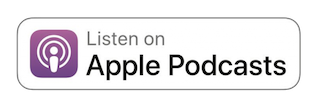

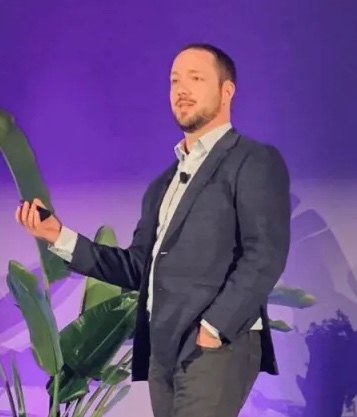
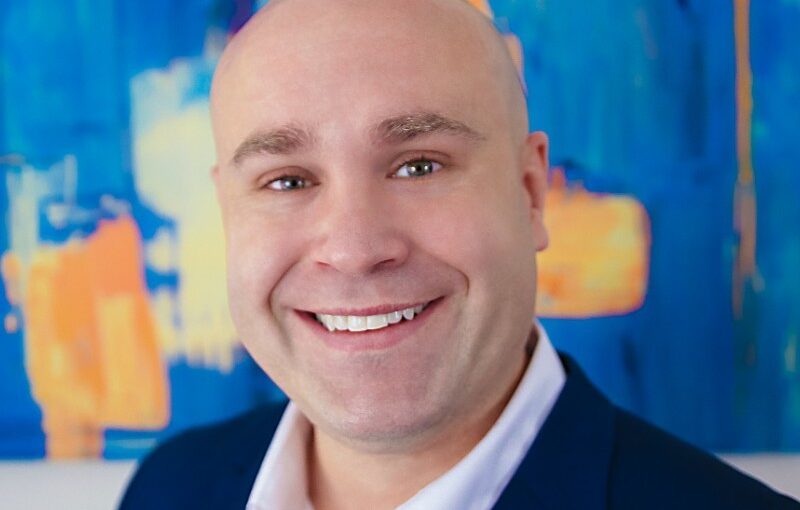
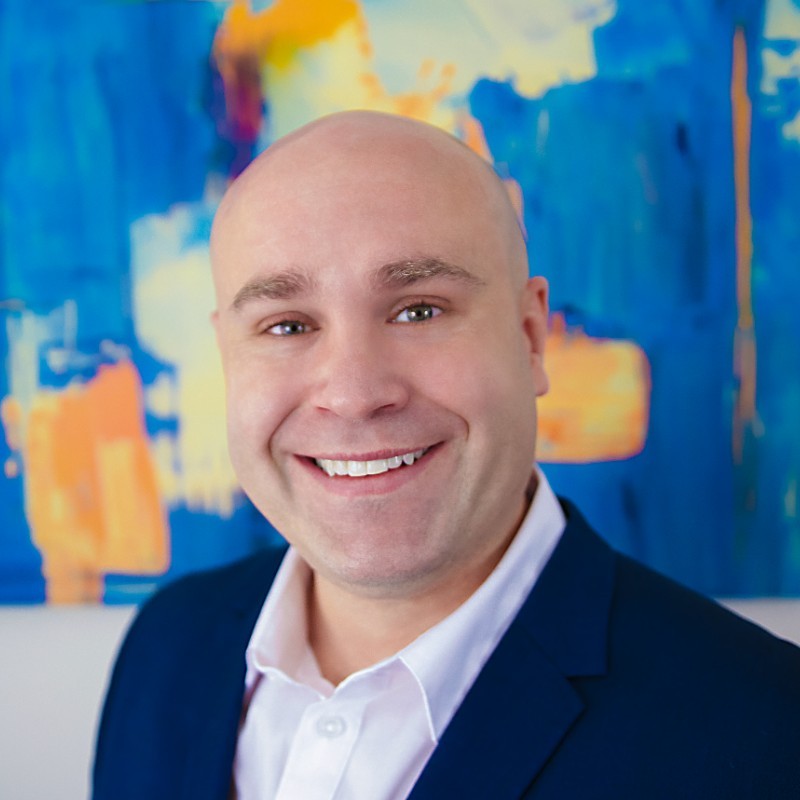
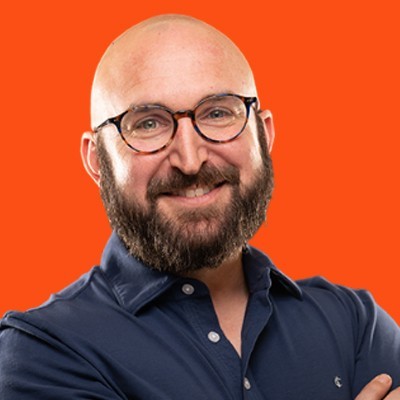
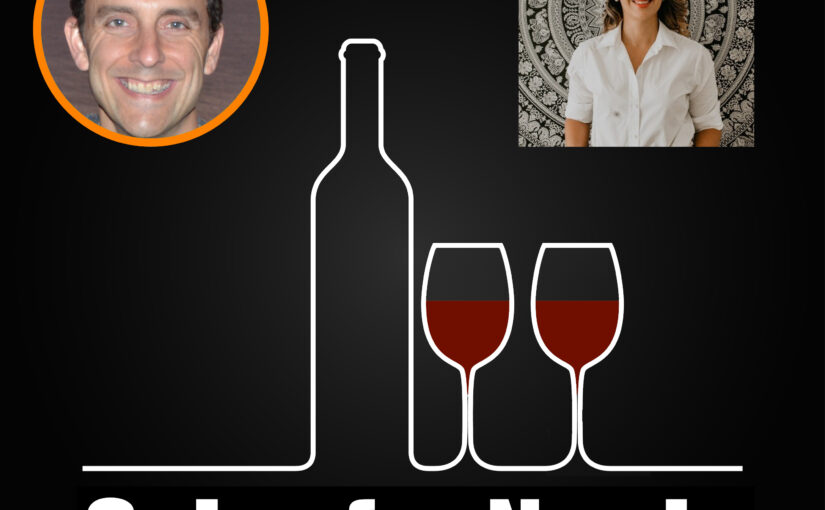


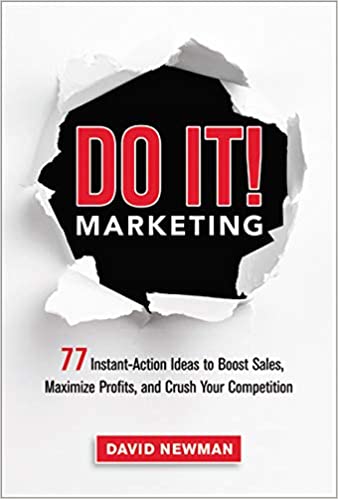

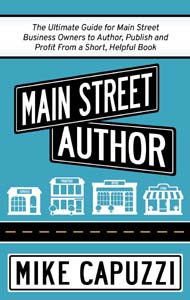
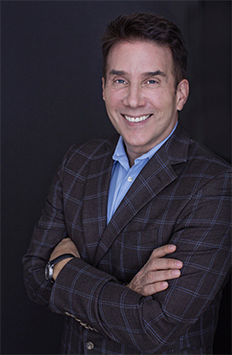
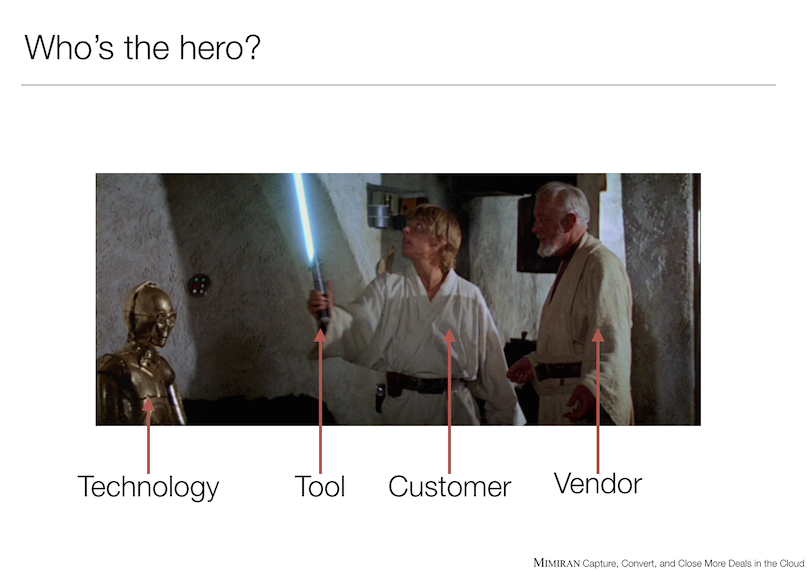
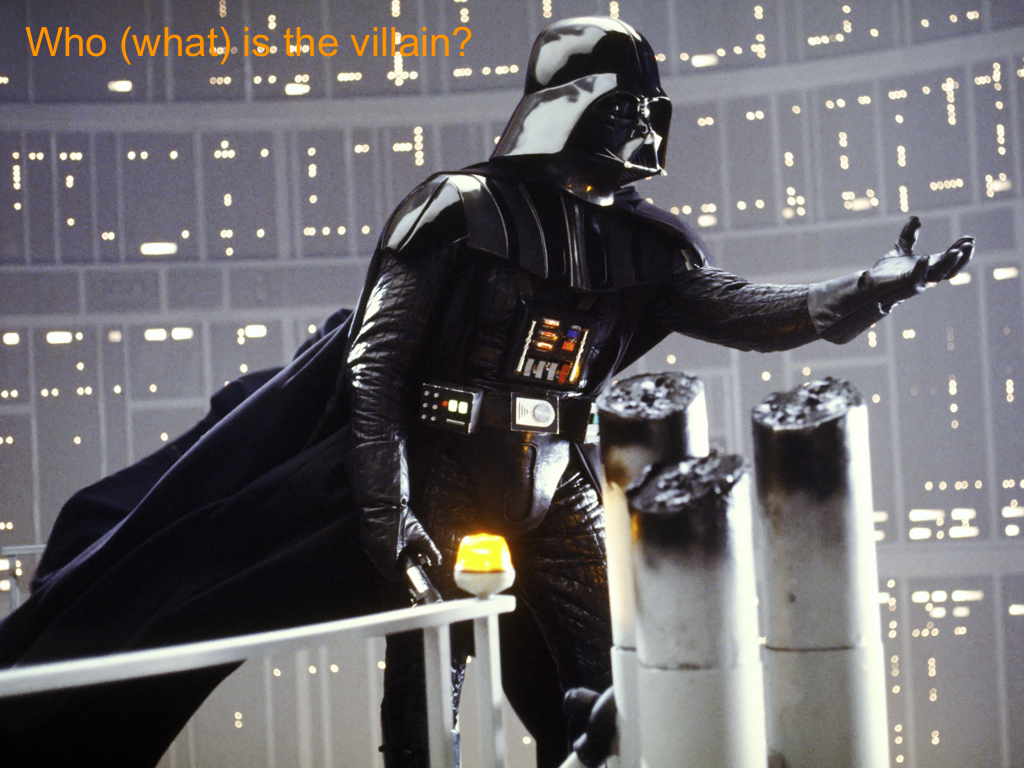
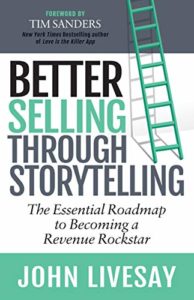
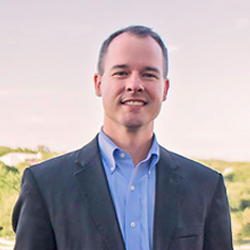
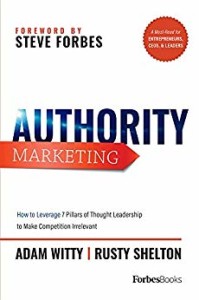 Authority Marketing: How to Leverage the 7 Pillars of Thought Leadership to Make Competition Irrelevant
Authority Marketing: How to Leverage the 7 Pillars of Thought Leadership to Make Competition Irrelevant Monte Real Rioja 2009 from Spain. Delicious, a bit of BBQ and smoke. Feels right at home in the Texas summer.
Monte Real Rioja 2009 from Spain. Delicious, a bit of BBQ and smoke. Feels right at home in the Texas summer.